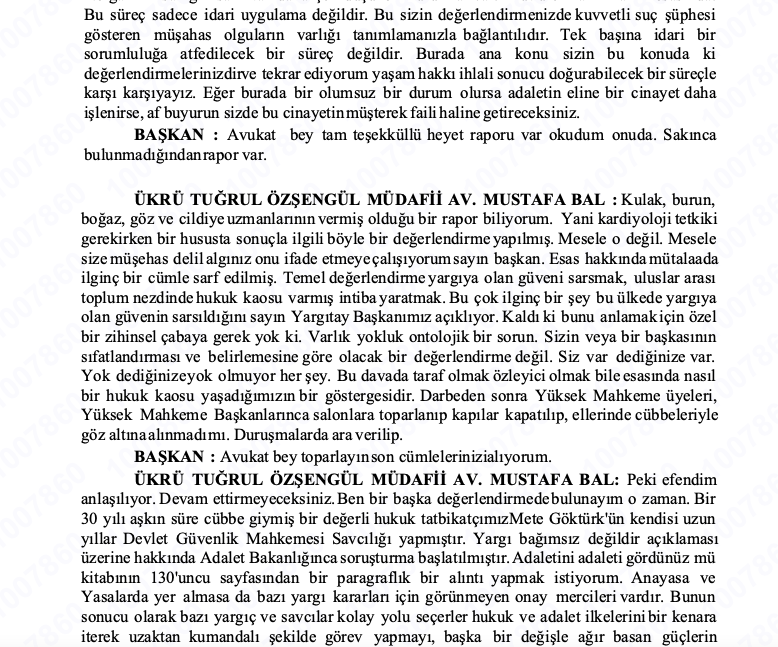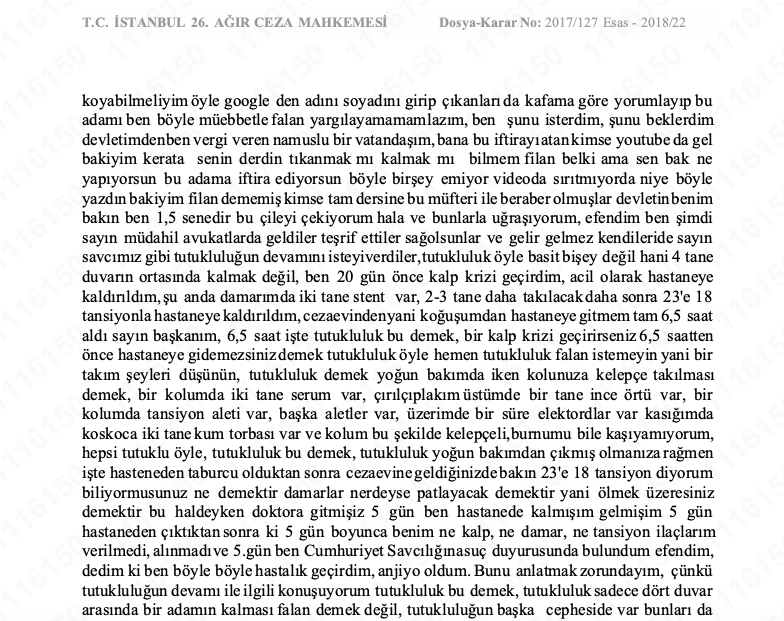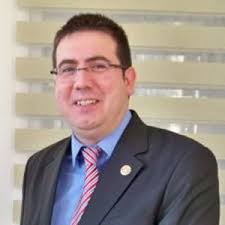Nordic Monitor/Stockholm
According to court documents obtained by Nordic Monitor, academic Tuğrul Özşengül, who died in prison on Saturday of a heart attack, repeatedly mentioned his heart condition in court and told the judge he would die if he had another cardiac arrest in prison. The court had told Özşengül that there was no health problem that prevented his incarceration.
Özşengül first mentioned his heart disease at a hearing in February 2018 and told Judge Kemal Selçuk Yalçın that he would soon be undergoing bypass surgery. His lawyer also stated that his client had difficulty in obtaining his medications. Judge Yalçın said the court was in possession of a medical report and that it indicated no problem with Özşengül’s imprisonment, while his lawyer said the report was drafted by an ear, nose and throat specialist, an ophthalmologist and a dermatologist and that no cardiology examination was performed. However, the court rejected the request for release on health grounds.
At another hearing Özşengül said he had a heart attack in his cell in the past and that he might not be able to recover if another one occurred.

“Your honor, the continuation of my detention means you’re signing my death warrant,” he said.
However, the court unanimously decided that Özşengül should remain in prison.
Özşengül also told Judge Yalçın that it took six-and-a-half hours to be taken from prison to the hospital and that the guards knew nothing about first aid.

Özşengül, who died at the age of 56, retired in 2014 as a lecturer at the Police Academy. After a controversial coup attempt on July 15, 2016, he was taken into custody and arrested for alleged membership in the Gülen movement, a faith-based group inspired by Turkish cleric Fethullah Gülen, which the Erdoğan government has declared a terrorist organization.
He was sentenced to life in prison by an İstanbul court in 2019. After the Supreme Court of Appeals overturned the decision, he was retried, and this time he was sentenced to 12 years. The verdict was again appealed at the top court. Şengül died in his cell, where he had been confined for six years, while waiting for 15 months for the court to make a decision.
Özşengül was accused by prosecutor Can Tuncay of writing columns in opposition media outlets, meeting with journalists opposed to the government, supporting corruption investigations into the government and criticizing the government’s seizure of companies belonging to businessmen allegedly affiliated with the Gülen movement.

Nordic Monitor previously published a secret document dated January 24, 2017 revealing that Tuncay ordered the police to investigate the parents, spouse and children of Özşengül part of a deliberate and systematic campaign of intimidation by the government of President Recep Tayyip Erdoğan
Nordic Monitor also reported that Levent Kenez, an editor for Nordic Monitor, was accused of libeling prosecutor Tuncay and Judge Yalçın on February 17, 2018 after the court had handed down aggravated life sentences to six defendants including Özşengül on trumped-up charges of attempting to overturn the constitutional order.
An İstanbul court requested the extradition of Kenez, who lives in Stockholm, claiming that Yalçın and Tuncay were pointed out as targets for terrorist groups, a common pretext used by the Turkish government to remove political opponents and civil society activists.
Tuncay was accused of involvement in the death of teacher Gökhan Açıkkollu, who had been subjected to torture during detention at police headquarters in İstanbul.
Judge Yalçın is affiliated with the pro-government Islamist Hakyol Foundation, a group that is highly influential in the Turkish judiciary.

Physical attacks, torture and ill-treatment, threats, beatings, strip-searches, violation of the right to health care, crowded cells and arbitrary bans in Turkish prisons are widely covered on social media, where dissidents can make their voices heard. Relatives often claim that arbitrary punishments are imposed in order to prevent prisoners from benefitting from their right to supervised release and that this right is made more difficult for government critics to take advantage of.
In addition, sick prisoners who are unable to take care of themselves, whose stay in prison prevents their accessing treatment and who are elderly are often on the agenda of human rights defenders.












